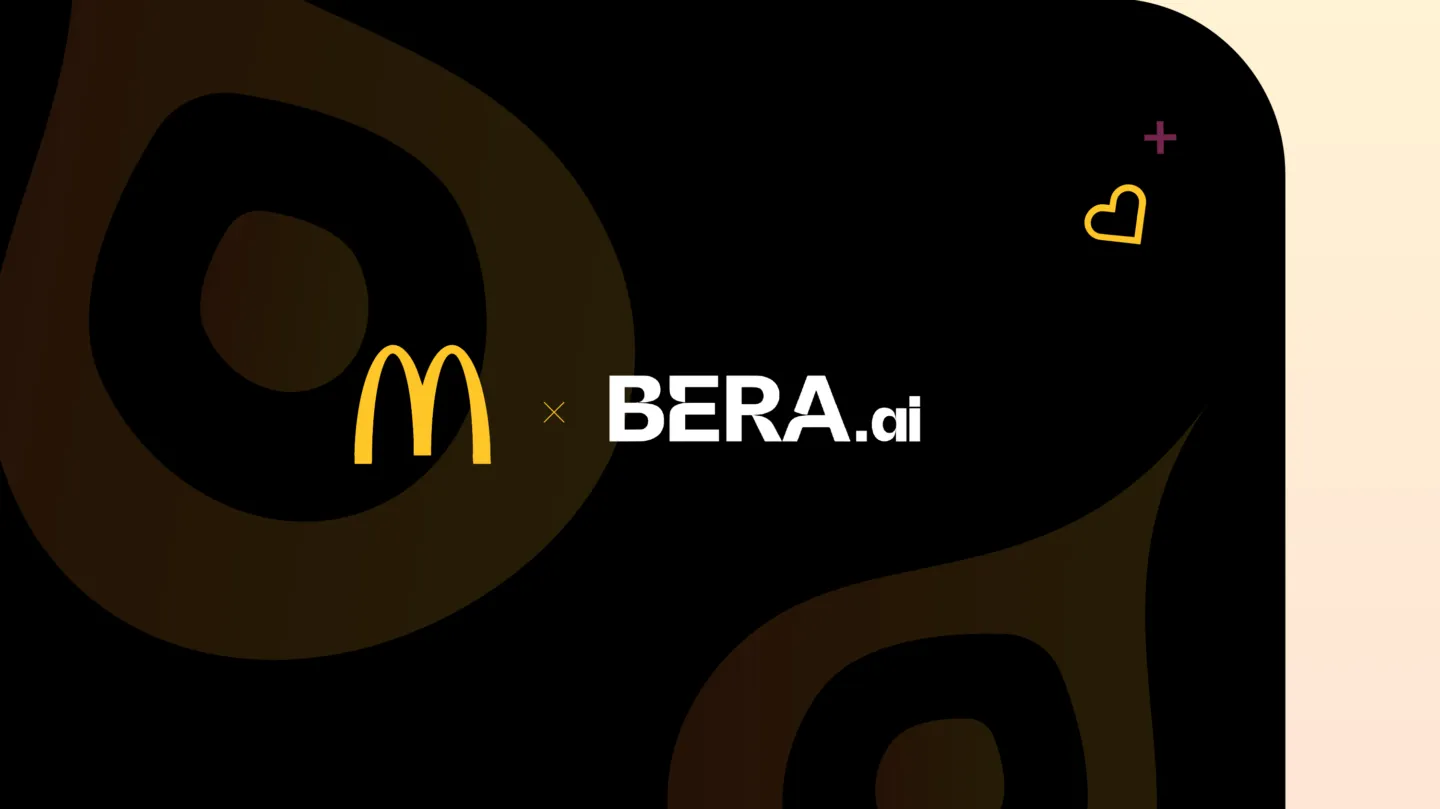When the CDC issued a food safety alert on October 22, 2024, linking a multi-state E. coli outbreak to contaminated slivered onions in McDonald’s Quarter Pounders, the fast-food giant faced a difficult challenge to its reputation. Consumers reacted swiftly, and the hit to McDonald’s perceived product quality and overall experience led to a two-percentile drop in McDonald’s BERA Score, which is the premier measure of brand equity that connects consumers’ relationship with a brand to its contribution to business performance and value.
What followed was a masterclass in crisis management. McDonald’s acted quickly and decisively to not only mitigate the damage but fully recover its brand perception in record time. How did the company do it? And what lingering challenges remain? Let’s break it down.
Crisis
The announcement of the E. coli outbreak triggered a notable decline in McDonald’s brand perception. According to BERA’s real-time brand tracking, the BERA Score drop was largely driven by weakened consumer perceptions of Product and Experience, with specific declines in:
- Care (trust in food quality and sourcing)
- Consistency (reliability of the brand experience)
- Expertise (confidence in McDonald’s food safety and operational standards)
This decline was a predictable consumer reaction—when food safety is compromised, brand equity takes an immediate hit. However, McDonald’s response dictated whether this would be a short-term setback or a long-term crisis.
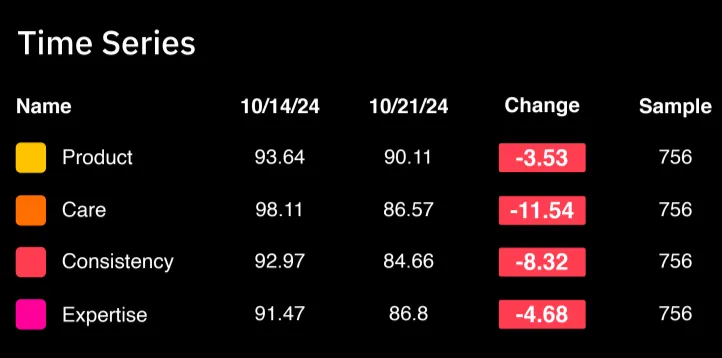
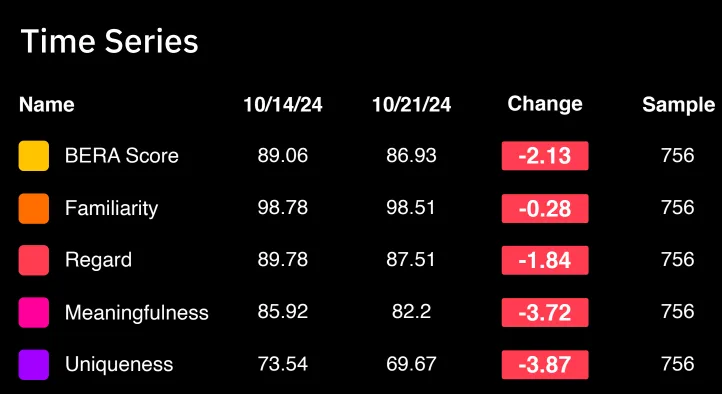
Recovery
Rather than letting the crisis spiral, McDonald’s executed a swift recovery plan:
- Secured a new slivered onion supplier to eliminate the contamination source.
- Partnered with health authorities to contain the outbreak and reinforce safety protocols.
- Communicated proactively with customers, emphasizing food safety measures and operational adjustments.
This transparent and decisive approach worked. McDonald’s BERA Score rebounded quickly, returning to pre-outbreak levels—an impressive feat in an era where food safety scandals can derail brands for months or even years.
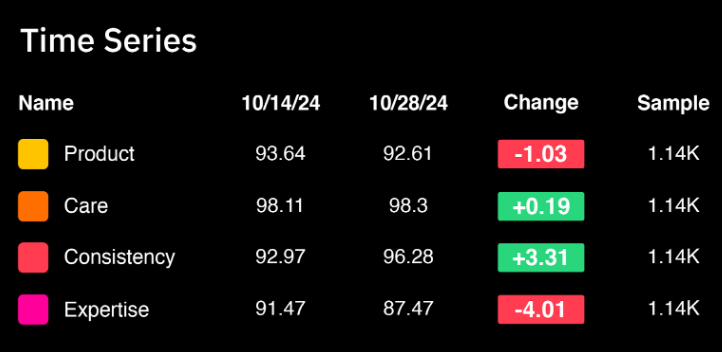
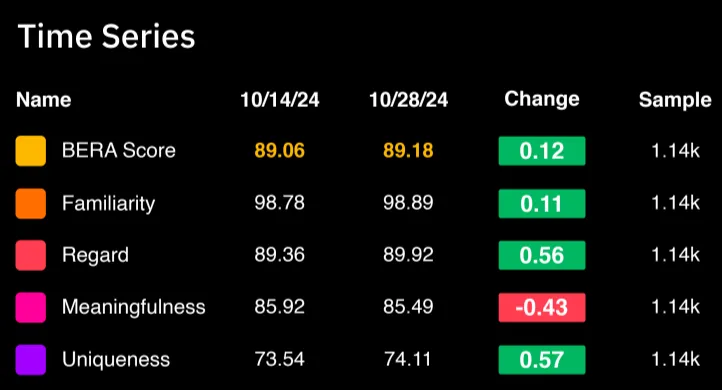
Resilience
Despite the temporary setback, BERA.ai’s data show that McDonald’s remains stronger than nearly 88% of all U.S. brands. However, it continues to navigate a highly competitive fast-food landscape, where perceived experience and quality are key differentiators.
Here’s what BERA’s data shows about McDonald’s and its major competitors:
- Chick-fil-A & Wendy’s outperform McDonald’s on overall brand equity, especially on trust in experience and attention to detail.
- McDonald’s maintains a lead over Taco Bell and Burger King, solidifying its position as a top-tier fast-food brand.
The biggest challenge? Narrowing the gap with Chick-fil-A in categories like “Experience I Trust” and “Attention to Detail”—two critical metrics identified by BERA.ai that influence long-term customer loyalty.
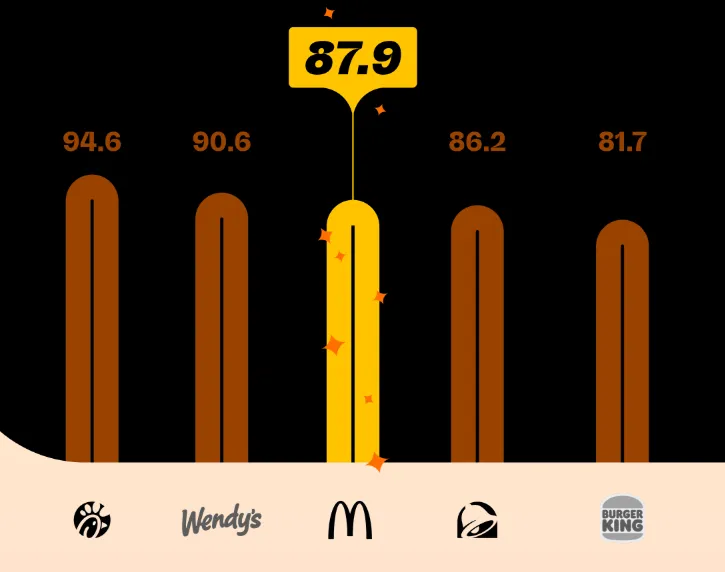
Work Remains
McDonald’s E. coli crisis could have been a major brand disaster, but its rapid response and proactive communication quickly turned the situation around. BERA.ai data confirms that the company restored trust, reinforced its commitment to food safety, and maintained its competitive standing in the fast-food industry.
However, the incident also exposed three brand metrics for improvement:
- Reinforce quality perception to avoid future dips in Product and Experience scores.
- Enhance customer trust in operational consistency, ensuring reliability at every location.
- Close the experience gap with Chick-fil-A by doubling down on service and attention to detail.
McDonald’s showed the power of a strong brand foundation—when tested by crisis, resilient brands recover, adapt, and emerge stronger. The key now? Turning short-term recovery into long-term advantage.
